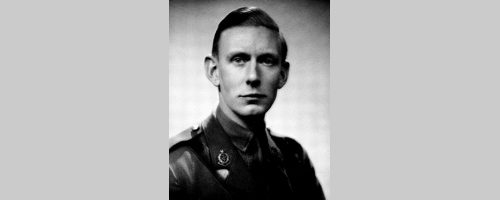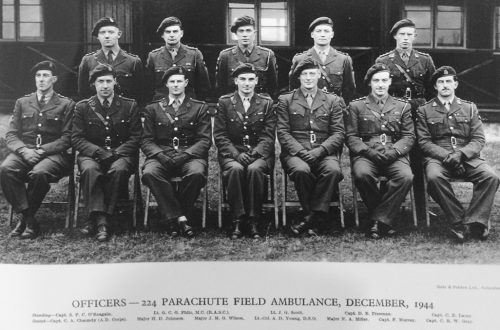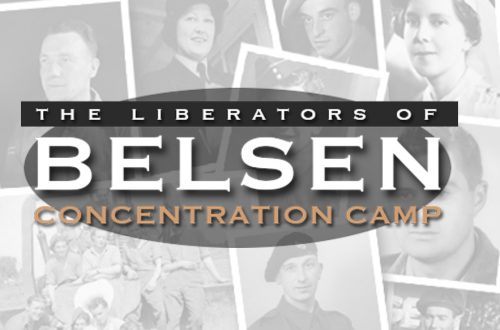Lt Col. James Christie Anderson OBE
O.C. Surgical Unit, 29 British General Hospital R.A.M.C.
James Christie Anderson, third child and third son of James Alexander Anderson, a schoolmaster, and Jeanie (née Boswell), was born in Dundee on 4 December 1899. After early education at Butterburn School and Dundee High School he secured an entrance scholarship to St Andrew’s University where he originally intended to study agriculture.
But his studies were interrupted by the first world war when he joined the Navy as a probationer Surgeon Lieutenant in 1917. On returning to Queen’s College, Dundee, he won the obstetrics and gynaecology medal before graduating in 1922. He was house surgeon at Dundee Royal Infirmary and at the Hospital for Sick Children, Great Ormond Street, London, before serving as resident surgical officer at St Mark’s Hospital in London. During this period in London he played rugby football for the London Scottish. He then moved to Chesterfield before becoming surgical registrar at the Royal Hospital, Sheffield, in 1926. He passed the FRCS in 1928 and was appointed honorary consultant surgeon at Sheffield in 1934. He was also lecturer in surgery and applied anatomy to Sheffield University.
Originally a general surgeon, Jock, as he was universally known, developed a growing interest in urology to which he later made a number of important contributions, notably in relation to carcinoma of the bladder and also hydronephrosis. The Anderson-Hynes pyeloplasty procedure was devised in concert with a plastic surgeon colleague in Sheffield. Having enrolled in the Territorial Army before the second world war, he was called up on the outbreak of hostilities and became officer in charge of the surgical division of No 29 British General Hospital with the rank of Lieutenant-Colonel. He served in Persia and Iraq and later in Normandy after D-day. When hostilities ceased he was called on to tend the victims of Belsen. He was awarded the OBE and TD and was mentioned in despatches. On demobilisation in 1945 he returned to Sheffield where his surgical work became primarily urological. He was President of the Section of Urology of the Royal Society of Medicine in 1961 and hosted a meeting in Sheffield of the British Association of Urological Surgeons in 1962. He also served for two spells on the court of examiners of the Royal College of Surgeons up to 1968 and was on the advisory panel on the training of surgeons.
Outside his surgical work with relatively little knowledge of agriculture, Jock purchased a farm in Lincolnshire in 1948. Busily engaged in surgery during the week, farming soon became his second love at weekends. This led quite naturally to a new life after retirement when he and his wife bought a farm in Western Australia some 200 miles south of Perth where he raised sheep and a splendid herd of cattle and, not forgetful of his first love, became an elected Fellow of the Royal Australasian College of Surgeons in 1971. One of his sons, James Christie Anderson, FRCS, is an orthopaedic surgeon in Perth; the second son is a veterinary surgeon also in Australia, and two of the three daughters emigrated to Australia, so that the family largely remained in proximity after his retirement from Sheffield.
Jock Anderson was a most industrious, cheerful and kindly man who made innumerable friends all over the world. Above all he loved a good argument. His surgical firm at Sheffield was a happy one for he gave much encouragement to his juniors and had the knack of bringing the best out of everyone. He had an abiding interest in history; was blessed with a good memory, and was a generous and charming host, with as much enthusiasm for vintage wines as for vintage Rolls-Royces. When he died in Perth, WA, on 3 February 1984 he was survived by his wife, his five children and fourteen grandchildren.
Date of Birth: 4 December 1899
Place of Birth: Dundee
Date of Death: 3 February 1984
Place of Death: Perth, Western Australia, Australia
Geoff Anderson “My grandfather Jock was at Belsen 13th May to July.”
9,516 total views





